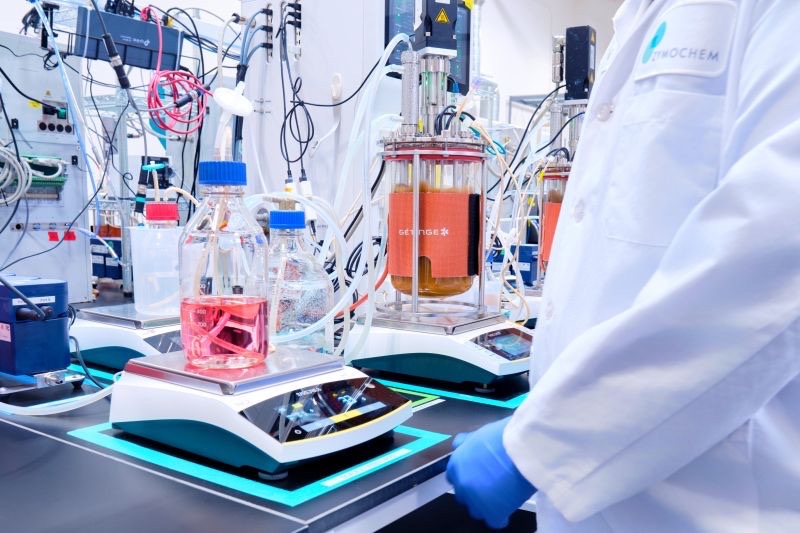In a bold step toward a more sustainable future, athletic apparel leader lululemon has announced a multi-year collaboration with ZymoChem, a biotechnology company based in San Leandro, California, to transform the way nylon is made. The partnership aims to scale the production of bio-based nylon 6,6, a critical material in many of lululemon’s best-selling products.

The collaboration builds on lululemon’s broader sustainability roadmap, aligning with its commitment to innovate beyond petroleum-based materials while maintaining quality and performance.
Bio-Based Innovation
Lululemon’s journey with ZymoChem began in 2023, following an initial investment to accelerate research into creating a bio-based version of adipic acid—a key ingredient in nylon 6,6 that is traditionally derived from fossil fuels. ZymoChem’s patented Carbon Conserving™ process offers a pioneering solution that produces this critical compound through biotechnology, eliminating the need for petroleum and significantly reducing carbon emissions.
 Image source ZymoChem
Image source ZymoChem
“What truly sets ZymoChem apart is their groundbreaking technology, which is capable of producing a bio-based material to create sustainable nylon 6,6 that provides the same look, feel, and quality expected from our high-performance products,” said Yogendra Dandapure, Vice President of Raw Materials Innovation at lululemon.
“By continuing to expand our partnerships with forward-thinking leaders like ZymoChem, we’re creating multiple pathways to transition to sustainable materials across our product portfolio,” Dandapure explains.
ZymoChem: Biotechnology and Sustainability
ZymoChem’s sustainability strategy is powered by its proprietary Carbon Conserving™ (C2) biomanufacturing platform, which leverages engineered microbes to transform renewable feedstocks into high-value materials—while emitting virtually no CO₂ during fermentation.
 Image source ZymoChem
Image source ZymoChem
This innovative process delivers up to 50% higher yields than conventional biomanufacturing methods, making it more environmentally friendly and commercially competitive with petroleum-based production. ZymoChem focuses on creating biodegradable, bio-based alternatives that seamlessly replace fossil-derived materials.
Scaling for Impact
With the foundation laid, the next phase of the partnership will focus on commercial scaling—bringing ZymoChem’s innovative biotechnology to market at a larger scale. This advancement represents more than a material innovation; it’s a systemic shift in how performance fabrics are created.
 Image source Mpls St.Paul Magazine
Image source Mpls St.Paul Magazine
“We spent years refining our patented Carbon-Conserving process with a vision to develop a sustainable version of nylon. We are thrilled to have deepened our engagement with lululemon, setting the stage for our technologies to deliver bio-based and decarbonized nylon on a global scale.” Harshal Chokhawala, Co-Founder and CEO of ZymoChem, added.
A Fresh Approach to Sustainability
The ZymoChem partnership adds to lululemon’s growing portfolio of material innovation collaborators. From working with Geno on bio-based nylon alternatives to partnering with Samsara Eco on the first enzymatically recycled nylon 6,6 product, lululemon is consistently pushing the boundaries of sustainable textiles.
Leading the Way in Nylon
The collaboration with ZymoChem is a testament to the power of cross-sector innovation, harnessing the latest in biotechnology and material science to reimagine what’s possible for next-generation activewear.
 Image source lululemon
Image source lululemon
With a focus on reducing environmental impact and preserving product integrity, lululemon’s partnerships reinforce its leadership in driving climate-conscious, high-performance apparel.
What is the lululemon and ZymoChem partnership about?
It’s a multi-year collaboration to develop and scale bio-based nylon 6,6 for high-performance apparel.
Why is nylon 6,6 important?
Nylon 6,6 is a durable, high-performance material used in many of lululemon’s best-selling products like Align™ and Wunder Train leggings.
What is ZymoChem’s Carbon Conserving™ process?
It’s a biotechnology platform that uses engineered microbes to turn renewable feedstocks into high-yield, low-emission materials like nylon 6,6.
Will product quality change with bio-based nylon?
No—ZymoChem’s material offers the same look, feel, and performance as traditional nylon.


.png&w=3840&q=75)





.png&w=3840&q=75)
.png&w=3840&q=75)